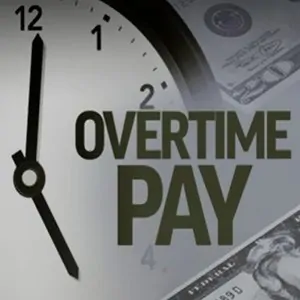12555 Orange Drive
Suite 233
Davie, FL 33330
12555 Orange Drive
Suite 233
Davie, FL 33330

Effective December 1, 2016, the new overtime rule will increase the minimum salary level for exempt employees from $455 per week ($23,660 annually) to $921 per week ($47,892 annually). The new salary level is based upon the 40th percentile of weekly earnings of full-time salaried workers in the lowest wage region of the country, which is currently the South. The new overtime rule also establishes an automatic updating mechanism that adjusts the minimum salary level every three (3) years. The first automatic increase will occur on January 1, 2020.
If you make less than $921 per week or $47,892 per year, even if your primary job duties are executive, administrative, or professional duties (“white collar exemptions”), you are still entitled to overtime pay under the proposed new overtime rules.
It is important to remember that job titles do not determine white collar exempt status. Even if you are paid on a salary basis you may still be entitled to overtime pay. Under the new overtime rule to be exempt from overtime pay, your specific job duties AND salary must meet all the requirements provided in the Department of Labor’s regulations.
As a practical matter, if you work for a covered employer and you make less than $921 per week ($47,892 annually), you are entitled to overtime pay under the new regulations regardless of your job title or primary job duties. Now, if you make more than the new threshold of $47,892 per year you are still entitled to overtime pay so long as you don’ perform job duties that fall under one of the exemptions.
The proposed new overtime rule is effective December 1, 2016, however 21 states have filed suit to stop the proposed new rule from taking effect, claiming the regulation is “unconstitutional.” In other words, President Obama and the Department of Labor cannot dictate how states allocate their budgets – new rule applies to both private AND public sector employees.
Although the worker bears the burden of proving that he or she worked overtime without compensation, it is the employer’s duty to keep records of the employee’s wages, hours, and other conditions and practices of employment; employer is in superior position to know and produce the most probative facts concerning the nature and amount of work performed and employees seldom keep such records themselves.
In situations where employer’s time records cannot be trusted and the worker lacks documentation, worker has carried out his burden of proving that he or she worked overtime without compensation if he or she provides that they have in fact performed work for which he or she was improperly compensated and produces sufficient evidence to show amount and extent of that work as matter or just and reasonable inference; burden then becomes employers, and it must bring forth evidence of the precise amount of work performed or evidence to negate reasonableness of inference to be drawn from worker’s evidence, and if the employer fails to produce such evidence, then court may then award damages to employee, even though the result be only approximate.
You should keep a log of all hours worked, especially if your employer’s time records are not reflecting the full amount of the hours you are working. For example, if your paycheck stub indicates you’re working 40 hours per week, but in reality you are working 50 hours per week, under the new regulation if you make less than $47,892, your entitled to 10 hours of overtime pay at 1.5 times your regular hourly rate.
If your time records aren’t accurate you have a right to put in a “good faith” estimate of those hours worked. Do not forget to include all time dedicated to work, even if done offsite. So all the time you spent answering late-night work emails is considered “working time” and you should be compensated. Also, if you are working at your desk through lunch hour, you must be compensated for this time as well.
Interestingly enough, a worker is not deprived of his FLSA claim because he underreported his time if knowledge of the underreporting is imputed to the employer.
If you make less than $921 a week in gross income you likely are owed overtime pay, even if you perform administrative, executive, or professional job duties. Because the FLSA unpaid overtime statute allows for payment of, unpaid overtime going back as far as 2-years (3-years for wilful violations), along with liquidated damages, and attorneys fees and costs, these cases tend to resolve quickly.
For more information about the new overtime rule and what it could mean to you as an employee or an employer contact an attorney in your area who handles FLSA overtime cases. It’s an area of federal law that not many attorneys practice. Also, please don’t forget to visit The Longo Firm Blog for more information about overtime claims.

Attorney Micah Longo is the founding member
and managing attorney of The Longo Firm. A
Pennsylvania native, Micah Longo...Read More